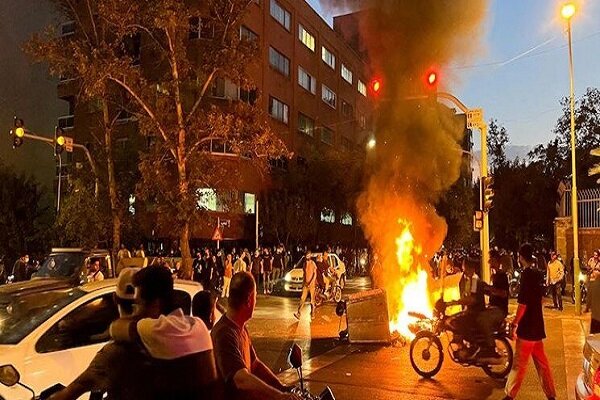By Mehran Shamsuddin

TEHRAN – Iranian officials have reiterated Tehran’s adherence to the redlines on many policy issues amid unconfirmed news about some Western inkling of Iranian leniency on some of those issues due to the unrest in the country.
The wave of unrest that engulfed Iran in the past two months appears to have impacted the approach of many Western countries toward the Islamic Republic of Iran. Some of the harshest criticism of Iran came from European countries that have long been advocating diplomacy with Iran, especially in relation to the 2015 Iran nuclear deal, officially known as the Joint Comprehensive Plan of Action (JCPOA), whose fate is now in doubt.
In response to Western “meddling” in its internal affairs, Iran has summoned European ambassadors several times. The latest European envoy to be summoned is the German Ambassador to Iran, Hans-Udo Muzel, “following Berlin’s spearheading in the holding of a special meeting of the UN Human Rights Council on the recent developments in Iran and the repetition of the meddlesome and baseless claims of the German officials,” according to an Iranian Foreign Ministry statement.
“During the meeting held at the Foreign Ministry, strong protest of the Islamic Republic of Iran regarding the interventionist remarks of the German officials, was conveyed to the ambassador. The German envoy was told that the recent resolution of the special meeting of the UN Human Rights Council, was a wrong step based on a highly political and instrumental approach to human rights that is totally rejected. It was also reaffirmed that the Islamic Republic will not cooperate with any mechanism defined on the basis of the resolution,” the statement said amid heightened tensions between Iran and the West following the latter’s move to push for the UNHRC to mandate a fact-finding committee on protests in Iran.
Many in Tehran believe that the West heaping human rights criticism on Iran is motivated by a will to extract concessions from Tehran on many issues that long, painstaking negotiations failed to settle them.
Adding substance to that belief is unconfirmed news that a Western power offered Iran a way out of unrest by meeting a number of demands: First, accepting the current deal on reviving the JCPOA; second, ending support of Russia, notably the alleged provision of drones; and third, engaging in substantive regional dialogue.
These demands have been more or less presented during talks in Vienna over resurrecting the JCPOA but to no avail because Iran has strongly stuck to the nuclear nature of the talks.
And recently, Iranian officials have reiterated that Iran will not cross its redlines. Iranian Foreign Minister Hossein Amir Abdollahian has stressed that Tehran will never back off on its nuclear redlines following the riots in certain cities across the country.
Speaking at a press conference attended by national and international journalists in Tehran on Wednesday, Amir Abdollahian pointed to Iran’s stance surrounding the nuclear talks intended to revive the JCPOA, saying, “The American officials speculated over crossing our nuclear redlines in light of the recent uprising in Iran but instead they had been told Iran is poised to reaching a durable and stable deal with regards of observing our own redlines.”
“We do not need America and Europe, who have a long history of violating human rights and have registered a dark history with regard to exploiting nations and countries, to be claimants of human rights in the Islamic Republic of Iran,” Amir Abdollahian remarked.
He added that the E3 (Germany, France, and the UK), America, and Zionists [Israelis] misunderstood the circumstances and events and made "meddlesome statements."
Ayatollah Seyed Ali Khamenei, the Leader of the Islamic Revolution, has also underlined Iran’s position of not giving ransom to the West. He has asserted that Iran's struggle is not with a bunch of rioters who have caused anarchy in the country, rather "the major fight is with the global hegemony."

No comments:
Post a Comment